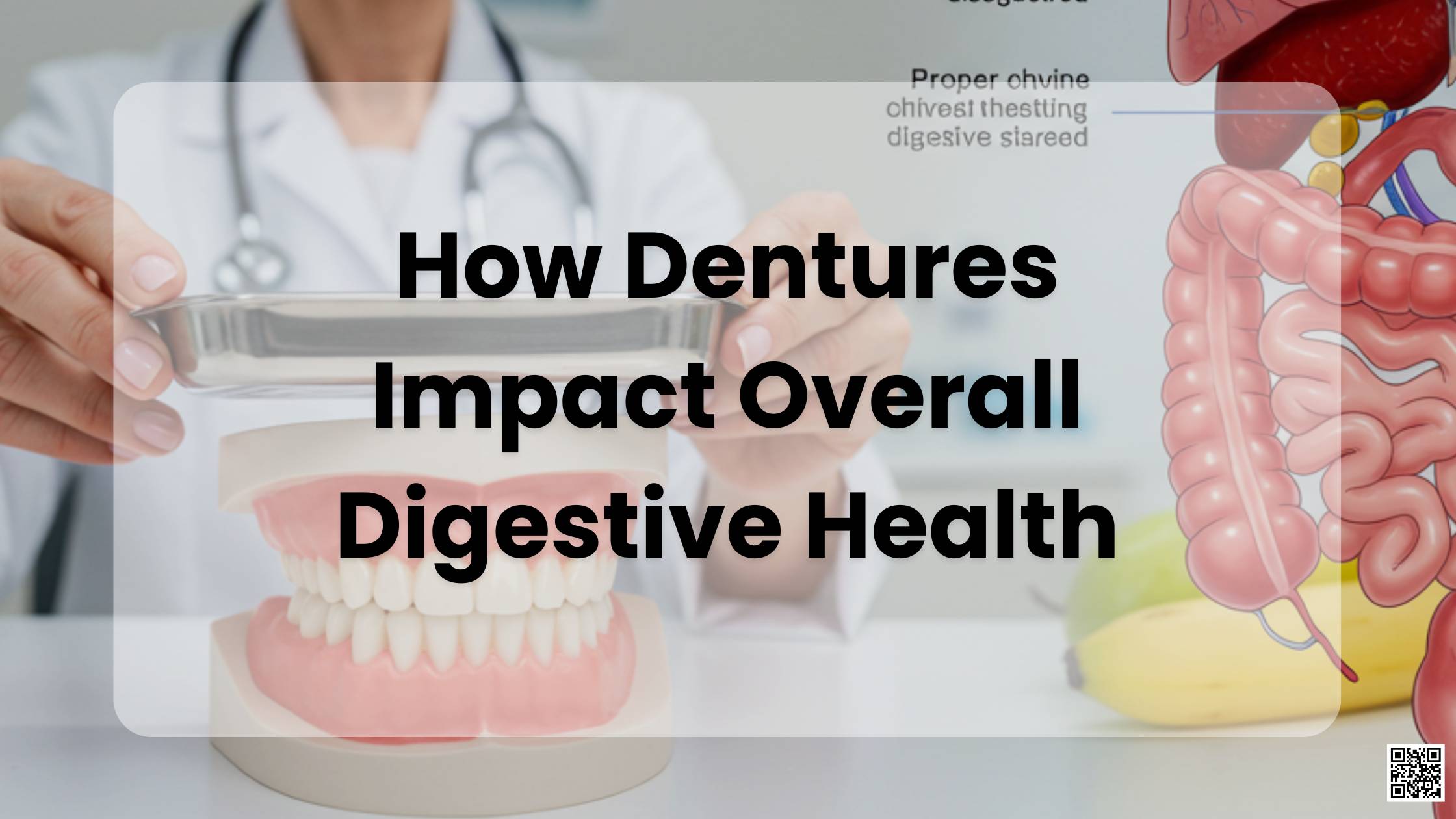Maintaining digestive health is essential for feeling good and functioning well each day. While many people focus on diet and gut-friendly habits, they often overlook how oral health plays a part.
One major factor is dentures — especially when natural teeth are no longer present. Dentures help with chewing, which is a vital first step in digestion.
If you’re wearing dentures or considering them, it’s important to know how they can affect your digestive system. Let’s explore how dentures impact overall digestive health and what you can do to keep everything working properly.

Chewing Efficiency Changes
Dentures help people chew again, but they’re not as effective as natural teeth. When food isn’t chewed thoroughly, the stomach and intestines have to work harder to break it down. This can lead to bloating or discomfort.
Poor chewing can also slow nutrient absorption. People with new dentures may eat more slowly or avoid tough foods. Over time, they may need to adjust their diet to improve their digestive health.
Saliva Production Support
Chewing stimulates saliva, which helps start digestion by breaking down food. Dentures can reduce how well a person chews, which lowers saliva output. With less saliva, food becomes harder to swallow and digest.
Dry mouth can also lead to mouth sores and infections. This all affects how comfortably and efficiently digestion begins. Using dentures properly and drinking water often can help increase saliva flow.
Bite Force Reduction
Wearing dentures often lowers bite strength. This makes it hard to chew hard or fibrous foods like raw vegetables or meat. Instead of chewing thoroughly, some may swallow larger pieces.
Larger food chunks are tougher for the stomach to process. This can cause indigestion or stomach pain. While these procedures are done daily to help people eat again, dentures require ongoing care and adjustment to maintain bite function.
Changes in Food Choices
People with dentures may avoid certain foods they used to enjoy. Hard, sticky, or crunchy foods may be uncomfortable or risky to eat. As a result, meals may lack fiber, protein, or essential nutrients.
Over time, this affects gut health and overall well-being. Softer, processed foods might be easier to eat but offer less nutrition. Being mindful of healthy, soft food options supports better digestive health.
Gum and Jaw Discomfort
Ill-fitting dentures can irritate the gums and jaw. This discomfort may lead someone to chew less or avoid eating enough. When chewing is limited, digestion begins at a disadvantage.
Pain can also lead to weight loss or nutritional gaps. Denture adjustments are often needed to relieve pressure points. Comfort and fit are key to maintaining healthy eating habits.
Psychological Impact on Eating
Some denture wearers feel self-conscious about eating in public. This can lead to skipped meals or rushed eating, which affects digestion. Eating quickly reduces chewing time and increases the chance of swallowing air.
These habits can cause gas, cramping, or irregular digestion. Feeling embarrassed may also cause stress, which harms gut health. Confidence with dentures improves both social comfort and digestion.
Learn How Dentures Impact Overall Digestive Health
Dentures affect more than just your smile — they play a key role in how well you digest food. Chewing, saliva, and food choices all change when you wear them.
Paying attention to these areas helps protect your digestive health. If you’re struggling with discomfort or diet changes, consult your dental provider for support. A good denture experience can lead to better health overall.
Looking to learn more? You’ll find extra insights on the blog.
Source: https://drginasam.net/






